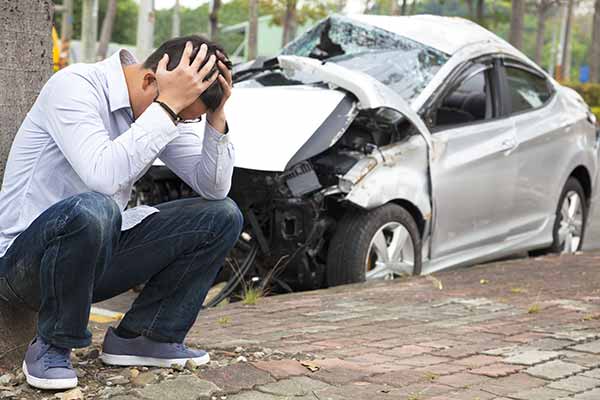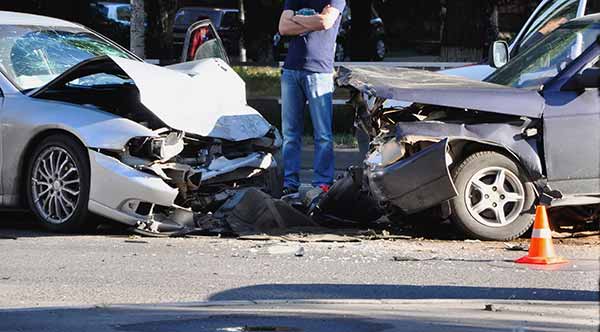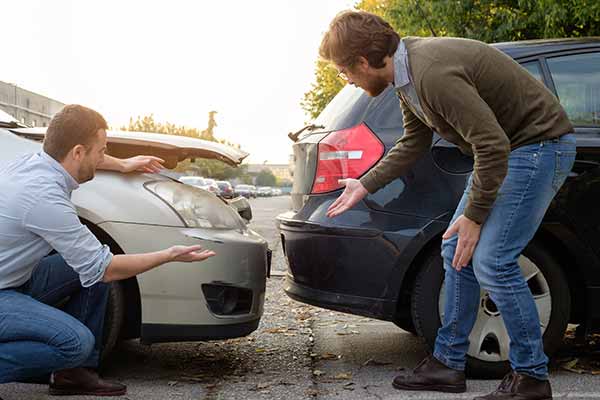All personal injury cases in Florida are traumatizing, but auto accidents are especially tough because of the momentous impact of collisions (especially true for wrecks involving pedestrians). Victims have to face mounting economic and non-economic pressures in the aftermath of such events, i.e. medical bills and property damages.
It is unfair, to suffer for someone’s negligence and recklessness, but it happens.
We can’t deny accidents, they are an ever-present possibility, but we can gather our strengths in case of a crash and initiate a cascade of processes to ensure that justice is served. Experienced car accident attorneys in Florida recommend that victims of an automobile accident gather firsthand evidence from the site to solidify their case and boost their chances of winning a fair settlement.
This article will compile some of the most widespread legal advice from auto accident lawyers to clients in this matter and detail all the steps for after an auto accident in Florida.
Most automobile accidents in Florida are only moderately severe but highly intense and dangerous accidents are also a possibility. As a victim, you’ll have to check on yourself and everybody else sharing your ride for any symptoms of injuries, these will translate into bodily injury liability.
If you have minors on board, you may have to ask them to let you know if they’re hurt or if they feel pain somewhere. This is no time to get emotional or aggressive, you will have to think with a clear mind. If you can move freely and are not seriously hurt, get out of your car and assess the damage.
See for yourself how bad the impact was, and scan the area for anyone else. Bystanders can not only offer much-needed help during this perilous hour but may also become useful witnesses when the time comes. For now, you’re on a fact-finding mission (as some lawyers would phrase it) and your goal is to assess the damage at first sight.
An alternate scenario may have you struggling to get on your feet after a serious crash. In this case, you’ll need some help getting out of the car and safely moving to the side of the roadway. Most likely, people will show up to volunteer and if they offer to help, don’t say no even if you feel like you can manage stuff on your own, because you never know.
If no one shows up (perhaps there were no bystanders), you can always call 911 and request their emergency services for car accident victims. When the paramedics show up, follow their instructions as best as you can, be cooperative, and let them help you as they choose to.

You may be rushed to the hospital if your injuries are severe in which case you will not be able to gather firsthand evidence or exchange information with the other driver. If you do need immediate medical assistance, there is no point in delaying matters any further.
You can fill in the gaps later on through a private investigation or the little bits you remember about the crash. For the moment, get patched up and when you’re feeling better, you can worry about the car accident case then.
In many states, such as Florida, it is a legal obligation for the parties involved in traffic accidents to call the police immediately. Of course, you won’t be expected to do so if you were incapacitated or in dire need of medical assistance.
But let’s say that you were only moderately injured, in this case, you’re expected to contact the police and ask them to send someone over. When the emergency personnel from the local police department show up, be sure to tell them every detail of the incident – how it happened, who was involved, and whatever else they ask.
It is normal to feel fuzzy after such events, thus if you find yourself unable to remember some details, tell the officers that you’ll let the police know as soon as you remember those details.
Ask for a copy of the police reports because you will need it for your records and to solidify your personal injury claim in Florida when presenting it before the insurance company for review. You should also ask for their badge numbers, don't worry, as a U.S. citizen, it is your right.
If the officers can’t, for some reason, come over to your position, you are obliged to report the incident to a nearby police station.
By the law of all states, including Florida, when people get involved in an accident with injuries, or even a minor one, they are obliged to share their information for proper legal procedure. This means that the other driver may also get out of their car and share their information.
You should ask them for their full name, license number, cell phone number, vehicle registration number, and so on.
Also, discuss the details of the respective insurance companies with each other (demand proof of insurance).
The one thing you’re not supposed to discuss here, even if the other party brings it up or hints at it, is fault. Don’t declare who’s at fault, don’t say stuff like "we’re both to be blamed," and so on. You should never discuss the blame before you’ve learned all the details and revised the facts.
Be courteous but not apologetic, because that may seem like an admission of fault.

Some motorists panic at the sight of the wreck and speed away from the scene, seeking to evade the responsibility. This is construed as a misdemeanor and is termed as a 'hit and run accident.' The reasons for this anti-social action vary across the board.
If it is an underage driver, they’d want to avoid trouble. The hit and run offender may be an uninsured motorist, someone with a criminal history, an intoxicated driver, an individual with a suspended or expired license, and so on. In all cases, these drivers will not be in a position of facing the consequences of their actions and thus flee the scene.
Never try to chase after a hit-and-run offender because they might be dangerous.
Another complication may arise if the at-fault driver was also terribly injured during the accident. In this case, you'd want to show some humanity and not bother them with "the talk" and instead only photograph the license plate number of their vehicle (of course, this will only be possible if you can get on your feet after the accident).
If the other driver is seriously injured, call an ambulance immediately.
In some auto accident cases in Florida, the other party may be a drunk driver, too disoriented to flee the scene. This does not make them any less of a threat, both to you and themselves. Thus calling the police right away should be priority zero.
As mentioned earlier, don't discuss the blame with the negligent party at this stage.
If the disagreement persists, later on, the insurance company will decide who's to blame.
You can challenge their decision, if unsatisfied, before a judge through an accident lawsuit.
This is one of the most important steps towards securing a fair settlement in your Florida motor vehicle accident case. It is only natural for the insurance company representative to be skeptical about the claims of the injured party. Thus, you should make your narrative as convincing as possible.
This, you can do by backing up every word with irrefutable evidence.
Before the reporting police officers show up at the scene, you should take out your mobile phone and start taking photographs of everything. Take photos of your injuries, those of your passengers, the damage taken by your vehicle, the entire crash scene, and the license plate of the other driver.
You can even make videos covering these details to supplement your photo evidence.
Take a look around you, are there any surveillance cameras in sight? If yes, take note of them, you should reach out to the monitoring body later on and ask for a copy of the tape. This will be a major addition to your evidence list.
If there were bystanders around, request them to share their contact information with you because they will become eyewitnesses for your case if things go that far. Witness testimonies will solidify your case before the judge.
Whether you’re in severe agony or feeling moderate discomfort (as may happen in case of minimum damage), you should not delay seeking emergency medical care for your crash injuries. You only have 72 hours from the moment an accident happens to visit your primary care doctor. If the accident caused some medical issues (various types of injuries) that might linger, your doctor’s prescriptions will become valuable proof for your case.
Bodily injuries such as a head injury can be devastating; auto accidents may cause short-term minor injuries or severe permanent injuries based on the intensity. You will need to prove your sufferings before the insurance company or a jury for securing compensation.
Don’t lose the medical bills and other records of hospital stay (if any), they will be vital for proving your point, and the pain associated with these injuries will get you additional compensation.
The accident may cause severe injuries and leave you with heavy financial drains. But if you wish to claim your legal right to fair compensation for your losses, you will have to pull yourself together, be brave, and keep track of all economic and non-economic damages you faced to ensure that you are compensated under the insurance policies.
These include all the monetary drains such as expenses for emergency medical care, repair costs for your vehicle damage, out-of-pocket costs for stuff necessitated by the accident, rehabilitation costs (in case of psychological trauma), and lost wages that fall under insurance coverage. You will need documented proof of everything for your insurance claim in Florida.
The insurer will not take your word for it (except for visible injuries), you'll have to produce solid evidence to back up your claims. However, pain and suffering are not something that you can empirically prove. People don't see pain, they can't touch it, and no one can know how you feel at any given instance.
However, the insurance adjuster can deduce your sufferings based on your medical bills and the doctor’s prescription.
Be sure to carry proof for your physical injuries, both apparent and otherwise.
If you lost a loved one (wrongful death cases can entitle you to death benefits/compensation) due to the at-fault party's negligence, then you will be able to file for loss of consortium – this only applies to close family members: spouse, children, and parents of the deceased.
Get in touch with competent personal injury attorneys in Florida to secure fair compensation from the at-fault party, even if you plan on negotiating a settlement for your financial losses like medical costs and non-economic damages with the insurance provider.
If need be, you can take matters before a judge, who knows, you may even get awarded some punitive damages.
With all the evidence at your disposal (such as expenses for medical care, lost wages, and so on), you’ll have to draft a demand for compensation and head to the auto insurance company of the negligent driver, preferably with your Florida personal injury lawyer. In some states, which follow the ‘no-fault statute,’ or if it was a hit and run accident, you’ll be going to your own insurance company and seek compensation under the auto insurance coverage.
In either case, prepare yourself for some rigorous questioning and skepticism regarding your claim under personal injury protection insurance coverage. The insurance adjuster will review your case, go through all the evidence, and then assign a compensation sum according to the insurance policies. Usually, the offer is not much, but you may be inclined to take it if your financial stability is at stake and you can't wait much longer.

Accident settlements in Florida can take some time, even months, but if you can wait through this duration, you will find something worthwhile out of it. Through the virtue of ample evidence and a convincing and consistent narrative, you might be able to get a fair settlement.
However, insurers are known to downplay the sufferings of the victims to avoid paying a fair sum.
If you feel like you’re being mistreated, you can walk out and file a personal injury lawsuit to claim fair compensation for your losses.
Experienced car accident lawyers are your biggest asset in this legal tussle of accident claims. The insurance company of the at-fault party and their lawyers will try to minimize the compensation sum. However, you should not let go of your struggle until you get what you rightfully deserve.
You did not ask to be brought into this mess but you should get out of it on your terms.
Florida accident injury lawyers know how to calculate the total losses more effectively and will also account for the pain and suffering you had to go through by assigning a multiple (up to 5) to the sum of your financial losses. This way, you will get maximum compensation and be able to bounce back to financial stability and normalcy after this entire process.
And you don't have to pay upfront because most lawyers work on contingency fee basis agreements (they'll take 10-45% percent from your winnings), so feel free to seek consultation and explore the liability in your case.
Just remember to file your case within the time limit set by the statute of limitations (usually a 4-year deadline).
These steps will help your claim process dearly, and allow you to demand fair compensation for your auto accident injuries, such as bone damage, soft tissue injuries, and other medical conditions - then there is property damage liability and much more.
Most people are deterred from the mere thought of having to hire an experienced car accident lawyer because they believe that they will not be able to afford the services. Well, fret not, because we, at the VG Law Firm, have a simple policy: no upfront fees.
Yes, you read that right!
We will not demand a payment for your case until you’ve won – this is called a contingency fee plan. The consultation is free (doesn't hurt to know your legal options), and our team of experienced car accident lawyers in Florida will see to it that justice is served.
Give us a call today and book your appointment!